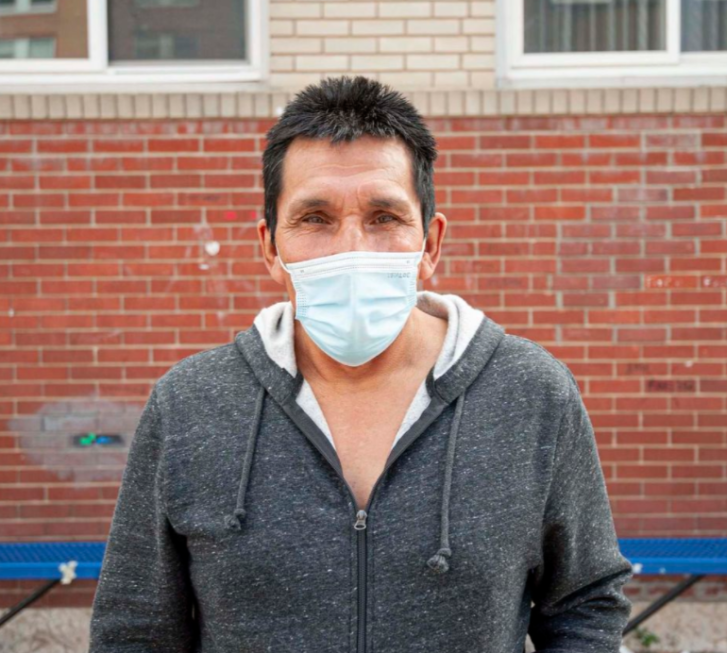A Main Street coffee shop has reverted to takeout only, citing concern about double vaccinated unhoused people not having access to COVID-19 vaccine passports.
“Those with no fixed address and no smartphone will inevitably be unfairly refused service as the province has no solution to meet the needs of the marginalized and others on the fringes of society. Simply put this is discrimination,” Parlour Coffee tweeted on Friday.
Under current public health orders, the café at 468 Main St. can only offer in-person dining to people who show proof of double vaccination. Manitobans can get immunization passports by downloading an application on their phone or applying for a plastic card, which they receive in the mail.

“We cannot in good faith refuse our friends who want to drink a cup of coffee inside to wait out the rain or snow,” the shop said on Twitter.
The decision was not to fuel the anti-vaccination movement — Parlour Coffee understands the reasons for the mandates, owner Nils Vik said in an email.
“We are 100 (percent) in favour of doing all we can to protect one another,” he wrote.
However, the focus should be on connecting unhoused people with resources to obtain passports rather than shutting down businesses, according to Shauna MacKinnon, an urban and inner-city studies professor at the University of Winnipeg.
“There’s no reason why we can’t be getting the cards into the hands of these people,” she said.
Shelters and groups supporting the homeless can use their facilities’ addresses as drop-off spots.
“There’s so many different community organizations out there that people go to and that they trust,” she said. “I think the answer… is to direct (people) somewhere so they can access a card.”
Businesses could refer customers to places like Main Street Project, MacKinnon said.
Alpheus Sinclair used Salvation Army’s Martha Street location as his card’s point of reference.
Sinclair has been double vaccinated since the beginning of July. Still, he was refused coffee last Friday because he didn’t have a vaccination passport on him.
“I just felt ignored,” the 43-year-old said.
He’s been waiting three weeks for a physical copy. He often checks the mail area at Salvation Army, where he’s been staying for over a month. But, someone recently showed him the Manitoba Immunization Card app; now, he can access his QR code on his phone.
Not all people experiencing homelessness have phones, MacKinnon said.
Lorne McMahon, who’s staying at a shelter downtown, said he’s been waiting for his card for months. He gave the shelter’s address when signing up.
“It doesn’t really matter to me,” McMahon said of receiving the card.
He already can’t go many places because, as a wheelchair user, they’re inaccessible, he said. Even so, a community services worker helped McMahon sign up for the QR code.
Jino Distasio, an urban geography professor at the University of Winnipeg who researches homelessness, wants to see mobile sites that dispense vaccination cards.
“Let’s do some pop-ups,” he said. “Let’s get as innovative as we have with vaccine access to now making sure those that need a little bit of extra help getting a card can do so easily.”
He called Parlour Coffee’s choice “commendable” but said the real focus should be on fixing people with services.
“It really takes a strong community-based approach,” he said. “We have to work together.”
Another barrier homeless individuals face is showing government-issued ID when flashing their vaccination passport to enter places — many people don’t have such papers, McMahon said. That can be solved by working with the right organizations, she said.
Manitoba has been slow to send plastic immunization cards due to high demand.
gabrielle.piche@freepress.mb.ca
Article: Toronto Star
Author: Gabrielle Piché

